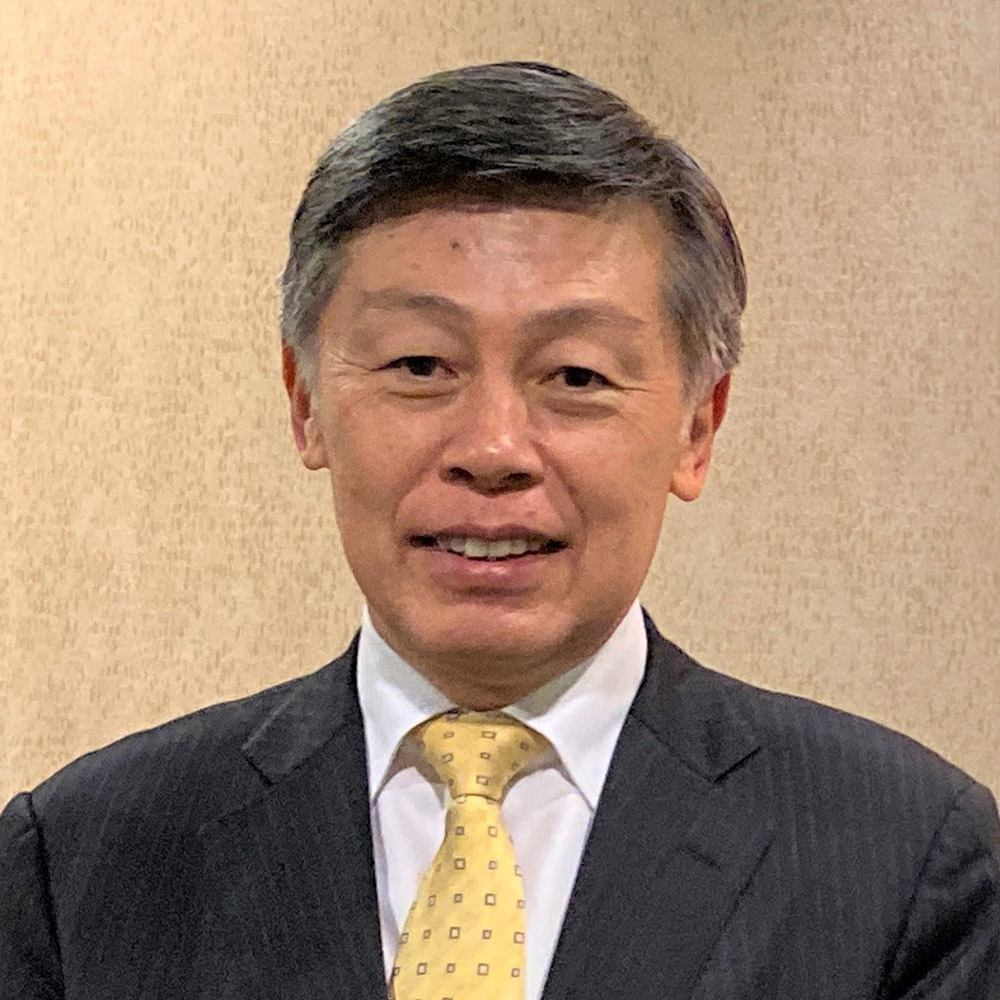His Excellency Kenichi Okada, Japan’s Ambassador to Hong Kong, brings a wealth of experience and diplomatic insight to the discussion on trade relations between Japan and Hong Kong. Assessing the current state of affairs, Ambassador Okada outlines measures to enhance bilateral trade cooperation in the coming years. With Hong Kong’s unique position as a bridge between Japan and China, he elaborates on the city’s role in facilitating economic ties and resolving challenges that may arise, emphasizing its significance as a gateway to enhanced collaboration. Furthermore, Ambassador Okada explores the advantages that Hong Kong offers as a business and investment destination for Japanese companies, along with strategies to bolster and leverage these advantages.
Delving into the development of the Greater Bay Area Region, he discusses Japanese businesses’ receptiveness towards expanding their presence in the region and the reciprocal openness of the Greater Bay Area to Japanese investment and collaboration. Additionally, Ambassador Okada envisions new areas of cooperation between Japan and the Greater Bay Area, particularly in light of Hong Kong’s transition towards green and sustainable development. In this context, he explores potential collaboration with Japan in renewable energy, sustainable infrastructure, and environmental technologies, emphasizing the opportunity for shared progress and innovation.
In this interview with Bridges, Ambassador Okada shares his mission and vision during his tenure as Consul-General of Japan in Hong Kong, highlighting his commitment to fostering enduring partnerships and driving collective prosperity.
Bridges: How do you assess the current state of trade relations between Hong Kong and Japan, and what measures do you foresee to enhance bilateral trade cooperation in the coming years?
HE Okada: Japan and Hong Kong are important trade partners for each other, with Hong Kong being the 12th largest trading partner for Japan in terms of total imports and exports, and Japan being the 5th largest trading partner for Hong Kong in terms of total imports and exports. Both regions maintain a free and open trading system based on the multilateral trading system with the World Trade Organization (WTO) at its core. Based on the said system, the two regions maintain a close trading relationship and conduct trade across a wide range of sectors, including electronic machinery and equipment, precious metals, precious stones and pearls, agricultural, forestry, fishery products and food, nuclear reactors, boilers and machinery.
Japan and Hong Kong are important trade partners for each other.
Kenichi Okada, Ambassador of Japan to Hong Kong
In particular, Hong Kong was the largest export destination for Japan for agricultural, forestry, fishery products and food for 16 consecutive years until 2020. Although the top spot was taken by mainland China in 2021, Hong Kong remains the 2nd largest export destination and one of Japan’s most important export destinations for agricultural, forestry, fishery products and food.
On the other hand, it is extremely regrettable that the Hong Kong government imposed an import ban on Japanese aquatic products from 10 prefectures in response to the discharge of the ALPS treated water into the sea in August last year, even though it is different from the ban by mainland China on the import of aquatic products from all prefectures. It is of serious concern that such ban has already led to a decrease in the export of Japanese aquatic products to Hong Kong. Import restrictions that are not based on scientific evidence are an extremely serious problem from the perspective of consistency with WTO rules, and could damage Hong Kong’s value and reputation as a free trade hub. It is encouraging to see so many Hong Kongers travelling our country and enjoying Japanese seafood, and it is a ‘vote of confidence’ to the safety of Japanese marine products. We will continue to provide scientific evidence and data on food safety for the Hong Kong government, while requesting the immediate removal of the regulations so as to normalize the trade relationship between Japan and Hong Kong.
Given Hong Kong’s unique position as a bridge between Japan and China, how do you perceive Hong Kong’s role in facilitating economic ties and resolving potential challenges between the two countries?
Hong Kong will contribute to promoting economic cooperation between Japan and China.
From President Xi Jinping’s address at the meeting celebrating the 25th anniversary of Hong Kong’s return to the motherland in July 2022, to Director Xia Baolong of Hong Kong and Macao Affairs Office’s speech at the opening ceremony of the National Security Education Day in April 2023, the Chinese government has repeatedly and consistently stated that under the “One Country, Two System” principle, it expects Hong Kong to maintain a free and open economic system, and an independent judicial system based on common law — which are different from that of mainland China — and to prosper as a gateway to China. We are also aware it is expected that the following advantages of Hong Kong (elaborated in the third question of this interview) will be utilized, and Hong Kong would fulfil its role as a test market for products and services for foreign enterprises, including Japanese companies, without being bounded by regulations in Mainland China and with a high degree of freedom. In addition, with the Greater Bay Area (GBA), an enormous market with approximately 86 million consumers in its hinterland, I think Japanese companies operating in Hong Kong seeking to enter the GBA expect that Hong Kong’s existing systems will be applied and expanded to the GBA in the future, and that such role for Hong Kong will contribute to promoting economic cooperation between Japan and China. Furthermore, I believe that Hong Kong can serve as a place where Chinese companies looking to expand into Japan can find capital and partners.
What advantages does Hong Kong offer as a business and investment destination for Japanese companies, and how do you plan to further promote and capitalize on these advantages?
Since its handover in 1997, Hong Kong has developed as Asia’s financial center and logistics hub, enjoying prosperity brought about by a free and open system that respects diverse opinions under the “One Country, Two Systems” principle. On the other hand, as widely reported by media, recently, there are developments that must be of grave concern — especially on the political aspect. It has been Japan’s consistent position that it is important for Hong Kong to maintain a free and open system, and to develop in a democratic and stable manner. I think it is the greatest strength of Hong Kong.
In addition, I am aware that Hong Kong possess several other strengths, including (1) geographical advantage (it is in the closest proximity to Mainland China, especially the GBA, and boasts easy access to other major cities in Asia); (2) convenience in securities trading with Mainland China (such as stock connect and bond connect); (3) Hong Kong dollar pegged to the US dollar; and (4) business-friendly environment. Expounding on the last item, Hong Kong has low and simple tax rates, minimal regulations, rule of law (there are 10 judges who have served in the Supreme Courts of the UK, Australia and Canada, among the 18 judges of the Court of Final Appeal, and it basically maintains judicial independence under the common law system, which differs from Mainland China), excellent transportation infrastructure, efficient administrative procedures, high-caliber and international talents (according to Times Higher Education, Hong Kong is the only city in the world with five schools listed in the Top 100 Universities, and four Hong Kong universities were ranked in the Top 10 in the “Most International Universities in the World”, with Hong Kong City University topped the list), and with Chinese and English as official languages.
When Japanese companies expand their business into Mainland China, they can enjoy tax advantages by investing through Hong Kong rather than directly from their headquarters in Japan.
There are various advantages, to utilizing these strengths. For instance, when Japanese companies expand their business into Mainland China, they can enjoy tax advantages by investing through Hong Kong rather than directly from their headquarters in Japan. By concluding contracts in Hong Kong, they can enjoy legal advantages of applying common law in case of potential lawsuits.
With the development of the Greater Bay Area Region, how receptive do you find Japanese businesses towards expanding their presence in the region, and conversely, how open is the Greater Bay Area to Japanese investment and collaboration? Additionally, what new areas of cooperation do you envision between Japan and the Greater Bay Area?
Some Japanese companies have established offices and conducted business in the Greater Bay Area (GBA), but they represent only a small number of Japanese companies operating in Hong Kong, and we are aware that such movements are still in the early stage.
Although Japanese companies in Hong Kong have shown interest in the GBA, we hear that there are significant gaps between Hong Kong and the GBA in terms of employment, labor, accounting, taxation, and regulations in various business fields, which pose obstacles to the expansion into the GBA. In particular, regarding regulations in various business fields, we recognize that there are many areas where Japanese products and services that are available in Hong Kong cannot be directly distributed in the GBA, and we hope that deregulation in each business field will be promoted, as soon as possible.
Japan and GBA share some common challenges, and cooperation is expected and anticipated in the fields of healthcare and elderly care, clean energy and environment, as well as agricultural, forestry, fishery products and food, where both regions have accumulated technological expertise and knowledge over the years.
Hong Kong has recently been emphasizing its transition towards green and sustainable development. How can Japan collaborate with Hong Kong in this transition, particularly in areas such as renewable energy, sustainable infrastructure, and environmental technologies?
Environmental issues, especially the global warming problem, are common global challenges, and it is crucial for all countries to cooperate and work together to address them. Same as Japan, Hong Kong has set an ambitious goal of achieving carbon neutrality by 2050, and has recently been working towards the introduction of extremely active measures such as regulations on disposable plastic products. The Consulate-General of Japan and the Hong Kong Japanese Chamber of Commerce and Industry are working closely with Hong Kong government authorities to support such efforts and to input opinions from the Japanese side.
The Consulate-General of Japan and the Hong Kong Japanese Chamber of Commerce and Industry are working closely with Hong Kong government authorities to support such efforts and to input opinions from the Japanese side.
For example, Hong Kong government authorities organized a seminar in March this year for Japanese companies on the regulations on disposable plastic products. We think this seminar is a very effective way for relevant Japanese companies to deepen their understanding on the Hong Kong authorities’ effort on the environmental issues, and it has further strengthened the cooperation between the two regions in this field.
We also look forward to more cooperation in the fields of renewable energy, sustainable infrastructure and environmental technology. We are confident that Japanese companies’ expertise in hydrogen-related technologies, environmental plastics, environmental recycling technologies, and sustainable fiber technologies can contribute to Hong Kong’s efforts to achieve its ambitious goals. We believe that the current cooperation between Japan and Hong Kong should be further strengthened in order to achieve a green and sustainable society. The Consulate-General of Japan is committed to enhancing the collaboration and cooperation with the Hong Kong government and other stakeholders, in this aspect.
What is your mission and vision during this tenure as Consul-General of Japan in Hong Kong?
Needless to say, the most important mission of the Consulate-General of Japan is see to the safety of over 23,000 Japanese nationals in Hong Kong and Macau, and to support the businesses of Japanese companies and Japan prefectural offices. At the same time, I think it is very important for us to further promote the relationship between Hong Kong and Japan, and Macau and Japan. The currently friendly Japan-Hong Kong and Japan-Macau relationships are multi-layered, including not only interactions between governments and organizations, but also connections of individuals, through friendship. This kind of heart-to-heart relationship is very strong and unshakable. We hope to further develop a relationship based on friendship and trust, and to further deepen our ties with Hong Kong and Macau through active economic and cultural exchanges.
It is very important for us to further promote the relationship between Hong Kong and Japan, and Macau and Japan.
With the aim of enhancing economic relations — aside from supporting businesses in the F&B and tourism fields, which are the important pillars of Japan-Hong Kong and Japan-Macau business activity — Japan will also support business initiatives in the healthcare and environmental fields. Japan has advanced technology and know-how in those fields, in order to address social issues such as the ageing society and climate change.
With regard to the cultural aspect, we have been collaborating with schools and various cultural and sports organizations, to further enhance the interest in Japan, through a wide variety of events, such as Japanese Buyo (Japanese traditional dance), Japanese flower arrangement, tea ceremony, kendo, judo, karate-do, yukata, kimono, furoshiki (traditional Japanese wrapping cloths) and Japanese paper folding. At the same time, with the help of those who are dedicated to Japanese language learning and Japanese studies, we will make every effort to create an environment in which it is easier for Hong Kong’s people to learn Japanese or to conduct research on Japan.






